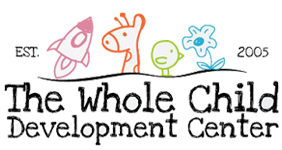![Benefits of Early Childhood Education on Cognitive and Socio-Emotional Development The term “early childhood education” encompasses both formally and informally delivered learning opportunities for children under the age of eight. Research has shown that early childhood education can significantly impact a child’s cognitive and socio-emotional development, which is why it’s essential to provide children with quality education during their formative years. In this blog, we’ll […]](https://www.wholechilddevelopmentcenter.com/wp-content/uploads/2023/02/Picture25.png)
The term “early childhood education” encompasses both formally and informally delivered learning opportunities for children under the age of eight. Research has shown that early childhood education can significantly impact a child’s cognitive and socio-emotional development, which is why it’s essential to provide children with quality education during their formative years.
In this blog, we’ll explore the benefits of early childhood education on cognitive and socio-emotional development.
Cognitive Development
The ability to think abstractly, analyze information logically and make sense of one’s surroundings are all part of a child’s cognitive development. By introducing children to various activities and subjects, early childhood education lays the groundwork for a child’s future academic success.
Here are some of the cognitive benefits of early childhood education:
1. Improved Academic Performance
Children who receive early childhood education tend to perform better academically than those who don’t. As a result, they have better language and literacy skills, which translates to improved reading, writing, and math skills later in life.
2. Enhanced Critical Thinking
Early childhood education can greatly benefit a child’s ability to think critically and creatively. Children gain lifelong skills, such as the ability to reason and make educated decisions, due to their exposure to various educational opportunities.
3. Increased Creativity
Children’s creativity flourishes when they are given the time and space to explore and develop their interests through many mediums, including painting, music, and play. This is something that we highly encourage at our child development center in Lenexa, KS.
Socio-Emotional Development
Socio-emotional development describes a child’s progress in areas such as self-awareness, relationship-building, and skill acquisition. Here are some of the socio-emotional benefits of early childhood education:
1. Improved Social Skills
Early childhood education allows children to interact with other children and develop social skills. This can help children learn to make friends, share, and cooperate with others.
2. Enhanced Emotional Regulation
Early childhood education can help children develop emotional regulation skills, such as recognizing and managing feelings. Children can better navigate their social relationships and life experiences by learning to express their emotions healthily.
3. Increased Self-Esteem
Children’s confidence can be boosted by participation in extracurricular activities, exposure to the arts, and academic success. This is a great way to help kids feel happy about themselves and grow up with a healthy self-image.
 Your child’s social and emotional well-being is paramount to their healthy development. That’s why it’s crucial to provide them with the right educational environment at an early age. The Whole Child Development Center, the leading childcare center in Lenexa, understands this and is committed to providing an affordable and enriching after-school and preschool program that fosters social and emotional growth in children.
Your child’s social and emotional well-being is paramount to their healthy development. That’s why it’s crucial to provide them with the right educational environment at an early age. The Whole Child Development Center, the leading childcare center in Lenexa, understands this and is committed to providing an affordable and enriching after-school and preschool program that fosters social and emotional growth in children.
Our approach is centered around engaging activities and creative play that also promote critical thinking and learning. If you’re looking for a daycare in Lenexa, KS, that can help your child grow and thrive, look no further. Get in touch with us today to learn more.







Leave a Reply
You must be logged in to post a comment.